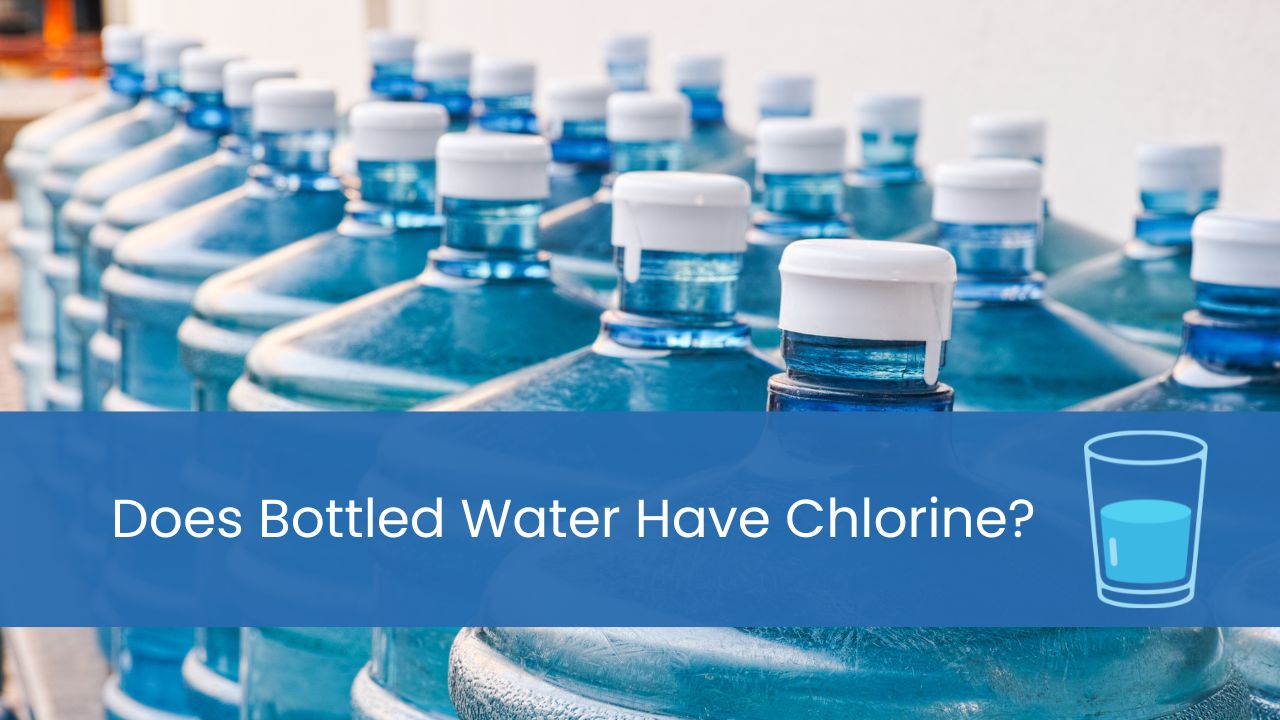Picture yourself on a hot summer day, reaching for a bottle of refreshing water to quench your thirst. As you take that first sip, you can’t help but notice a hint of something familiar – the taste of chlorine.
But wait, isn’t bottled water supposed to be pure and free from any additives or chemicals? So, does bottled water have chlorine?
The answer is yes…and no. While some brands of bottled water may contain traces of chlorine as part of the disinfection process, others go to great lengths to remove it completely. The amount of chlorine found in bottled water is usually much lower than what you would find in tap water, but it can still affect the taste and odor.
Let’s dive deeper into the world of bottled water and explore whether or not your favorite brand contains any traces of this chemical compound.
Key Takeaways
- Bottled water may contain traces of chlorine as part of disinfection process, but some brands remove it completely.
- Chlorine in bottled water is usually much lower than tap water and can affect the taste and odor of water.
- Chlorine in bottled water is generally safe to drink and won’t harm you, but taste resembling pool water can be traced back to water treatment process.
- Consumers can switch to brands with alternative treatments or different mineral content to find the type of bottled water that suits their needs and preferences.
Table of Contents
Is There Chlorine In Bottled Water?
You might be surprised to learn that bottled water often contains chlorine, a chemical commonly used to disinfect drinking water. In fact, many popular brands of bottled water, including Poland Spring, contain chlorine as a way to keep the water clean and safe for consumption. However, the amount of chlorine in bottled water is usually very low and well below the maximum allowable limit set by the Environmental Protection Agency (EPA).
While some people may be concerned about the presence of chlorine in their bottled water, it’s worth noting that there are other substances found in many types of bottled water as well. For example, some brands may add minerals like calcium chloride or magnesium sulfate for taste or health benefits.
Other types of bottled water may simply be filtered tap water or purified using reverse osmosis or distillation methods. Ultimately, it’s up to you to decide which type of bottled water is right for your needs and preferences.
Bottled Water Tastes Like Chlorine?
Many people are surprised to find a distinct taste resembling pool water in their bottled beverages. If you’re one of them, don’t worry – it’s not just your imagination.
The source of this taste can be traced back to the water treatment process that most bottled water goes through. Here’s why:
- Chlorine is commonly used as a disinfectant in municipal water systems to kill bacteria and viruses that could make us sick.
- The same is true for many bottled water brands, such as Poland Spring.
- However, some companies use alternative methods like adding calcium chloride or magnesium sulfate to eliminate bacteria instead of chlorination.
Additionally, most bottled waters go through a filtration process to remove any impurities or minerals that may affect the taste.
So if you’re tasting chlorine in your bottled water, it’s likely due to residual amounts left over from the treatment process. But don’t worry – it’s generally safe to drink and won’t harm you. And if the taste really bothers you, try switching to a brand that uses alternative treatments or has a different mineral content.
While many people notice a pool-like flavor in their bottled beverages, it’s usually due to residual chlorine from the treatment process rather than any inherent properties of the water itself.
Most bottling companies take steps like filtration and alternative disinfectants (such as calcium chloride or magnesium sulfate) to ensure their products are safe and tasty. So keep sipping on your filtered and treated H2O without fear!
Conclusion
So, there you have it – bottled water can indeed contain chlorine. But don’t let that turn you off from drinking it! Think of it like a lemonade with just the right amount of tang.
Just because there is a slight flavor present doesn’t mean it’s harmful or unpleasant. In fact, many bottled water companies use chlorine as a disinfectant to ensure their product is safe for consumption.
So, if you’re someone who prefers the taste of pure H2O, look for brands that specifically state they use no chlorine in their filtration process. Otherwise, sit back and enjoy your refreshing drink with the knowledge that a little bit of chlorine won’t hurt you.

Audrey McGill
About The AuthorMeet Audrey, the water-enthusiast behind WeLikeWater.com. Her love for all things H2O inspired her to create this laid-back space where folks can dive into the world of water. From the fizzy to the calm, Audrey's been on a journey through every ripple and wave, and she's eager to share her discoveries.

